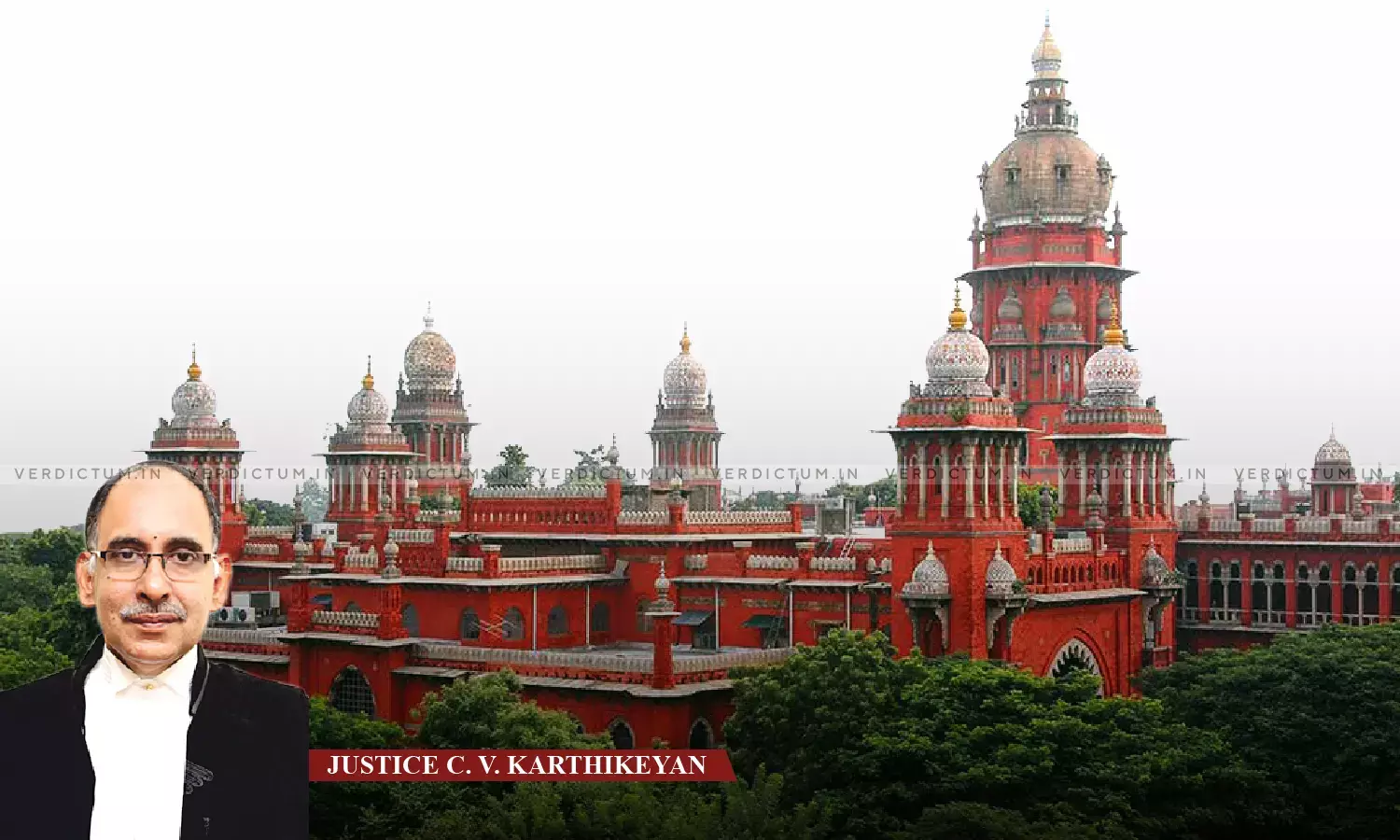Contracting Second Marriage During Subsistence Of First One Is Condemnable: Madras HC Directs For Disciplinary Proceedings Against Employee

Justice C.V. Karthikeyan, Madras High Court
Finding that the permission to retire was granted to the petitioner in the teeth of pendency of a writ petition against him, and therefore the petitioner cannot escape from the rigours of disciplinary proceedings, the Madras High Court directed the first and second respondents to initiate disciplinary proceedings on the complaint given by the petitioners even though they had deliberately permitted him to retire during the pendency of writ.
The High Court further held that the first and second respondents have failed in their duty and in their responsibility not only to the family of their own employee but also to follow the rule of law and the Code of Conduct which is expected of any employer.
The High Court held so while considering a petition filed by the first wife and her two sons of the third respondent seeking a direction to the first and second respondents to initiate appropriate departmental action against the third respondent as contemplated under the Government Conduct Rules for committing an offence under Section 494 of IPC.
A Single Judge Bench of Justice C.V. Karthikeyan observed that “the first and second respondents have entered into an unholy alliance with the petitioner in W.P. No. 15586 of 2018. It is a clear case where they have all joined together to defeat the rights of the petitioner in W.P. No. 4906 of 2018, while accepting that the first petitioner was the first wife and in equally trampelling the dignity of the second wife. Therefore, the order permitting him to retire cannot withstand the scrutiny of this Court”.
“The statements made in the affidavit itself are sufficient to hold that the petitioner in W.P.No. 15586 of 2018 had contracted a second marriage when the first marriage was still subsisting. This act is condemnable and has to be further examined by initiating disciplinary proceedings”, added the Bench.
Advocate S. Udaya Kumar appeared for the Petitioner, whereas Advocate A. Sri Jayanthi appeared for the Respondent.
The brief facts of the case were that the first writ petitioner had stated had married the third respondent as per Hindu Rites and Customs and two children were born to them, who are second and third petitioners. The third respondent was working under the first and second respondents. Claiming that he ill-treated her, she took a decision to live separately along with the other two petitioners. Taking advantage of such separation, the third respondent had married another lady and through her two female children were also born to him. The petitioner claimed that she sought initiation of departmental action against the third respondent but the second and third respondents had not responded to such requests. Claiming that departmental action should be initiated against the third respondent, the petitioner approached the High Court.
After considering the submission, the Bench found that the present is a case where the first and second respondents have acted as an extra judicial authority and had taken the law into their own hands when the matters were pending before this Court.
“On the one hand, they issued a letter which is impugned in W.P. No. 15586 of 2018 rejecting a request made by the petitioner therein seeking payment of retirement benefits by stating that it could not be so paid owing to pendency of W.P. No. 4906 of 2018. That writ had been filed seeking initiation of departmental proceedings against the third respondent. On the other hand, they entered a memorandum of compromise agreeing to release the amounts provided W.P. No. 15280 of 2020 is withdrawn. One fact is clear. The first petitioner in W.P. No. 4906 of 2018 is admittedly the first wife of the petitioner in W.P. No. 15586 of 2018. That fact has been stated in the affidavit and has also been stated across the bar”, added the Bench.
The Bench further found that when that marriage was subsisting, the petitioner in W.P. No. 15586 of 2018, in defiance of the Conduct Rules proceeded to marry another lady. In effect, by his conduct, he had effectively created two separate victims, two ladies and their children.
The Bench therefore highlighted that it is a weak argument to advance that the ladies are individually employed and draw pension, since that money is inadequate compensation for the suffering and mental agony which they would have undergone, with one knowing that the petitioner had deserted her and had taken companionship of another lady, and the other, also a victim, who had fallen into a trap laid by the petitioner in realizing well her status would always be questionable.
“When this is the case, it does not augur well that the first and second respondents had extended a favourable hand to the petitioner in W.P. No. 15586 of 2018 and try to brush the dust under the carpet. They should have initiated disciplinary proceedings. They were aware about the contracting of a second marriage by the petitioner in W.P. No. 15886 of 2018 when the first marriage was subsisting”, added the Bench.
Therefore, the High Court directed for initiation of disciplinary proceedings and made it clear that the first and second respondents should act independently and as a prudent employer.
Cause Title: P. Santhi and Ors. v. Chairman and Managing Director, Tamil Nadu Mines and Minerals Ltd
Click here to read/download the Order

